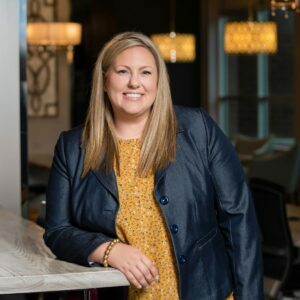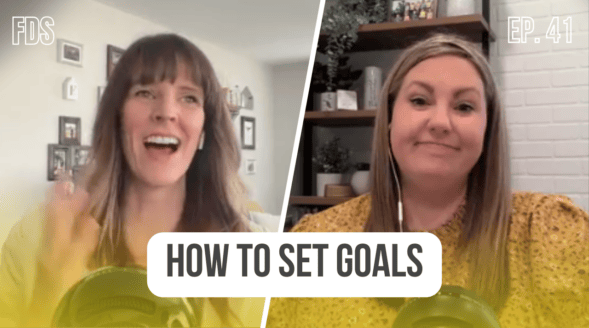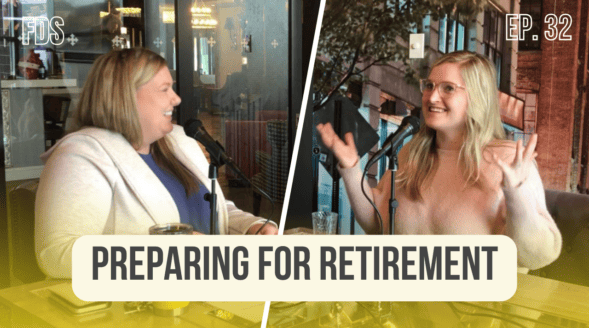What Medicare Coverage Do You Actually Need? [Video]
by Michelle Smalenberger, CFP® / June 19, 2023One of the first things a near-retiree should consider before retiring is Medicare and what health insurance coverage they’ll have.
Hi, I am Michelle Smalenberger, a fee-only financial advisor here at FDS.
Today’s topic is Medicare. Medicare is federal health insurance in the United States.
The main points we will cover are:
- Who is eligible and when
- The Types of Coverage
- Things to Remember
Before diving in here, be sure to subscribe to our channel if you find these videos helpful!
Who is eligible for Medicare and When?
Typically people receive Medicare at age 65. There are a few others who can qualify such as some individuals who are disabled or have end stage renal disease. This is health insurance for those who have worked or for qualified individuals like a spouse of someone who has worked.
it’s possible that your employer will require you to get Medicare and then use the employer’s coverage as a secondary insurance policy even if you’ve reached age 65 and are still working.
What Are the Types of Medicare Coverage?
Medicare parts of coverage:
- Part A: Medicare Part A coverage is for inpatient hospital insurance. It can also cover services like Hospice or care in a skilled nursing facility.
- Part B: Medicare Part B covers outpatient medical services. These may also include things like home healthcare or preventative services.
- Part C: This coverage bundles combinations of Part A, B, and C coverages together. You may commonly hear these referred to or sold as a Medicare Advantage plan.
- Part D: Medicare Part D covers Prescription Drug Coverage
- Another type of coverage that people typically have is Medigap coverage. This serves as a supplement or a secondary policy after Medicare to cover the remaining costs or a majority of them.
It’s very important to consider Medicare and how it affects you when you are nearing retirement or even nearing age 65. If you don’t sign up for it there could be penalties you’ll pay for the rest of your life because you didn’t sign up early enough.
What Do You Need to Consider?
Let’s see how this works on a timeline of various ages to see when you need to be considering what health insurance you’ll have in place. What you are really looking to gain in this process is clarity of the best option for you and your plan.
Age 30 and working:
- Employer health insurance
- Saving into your HSA for the future years of potential early retirement or expenses that insurance doesn’t cover.
Age 55:
- Employer health insurance
- Or individual coverage such as the Health Insurance exchange. We talk about this on our most recent insurance podcast episode.
- You may also have retiree health insurance through your employer to consider
- Use your HSA funds
Age 65 and after:
- Medicare age to apply and sign up for at least Part A and Part B
- Consider a medigap policy
- Consider any employer provided retiree health insurance you have available
- Use your HSA funds
Next Steps for Medicare Coverage
If this was helpful and you realize that you need to make sure your funds are on track for expenses in retirement, please visit our website and get started by talking with our team to see if we can help you with your financial plan. This is one area you want to be confident.
And be sure to check out our most recent podcast episode for more insurance mistakes and misconceptions. See you in the next video!
Ready to take the next step?
Schedule a quick call with our financial advisors.
Recommended Reading
How to Set Financial Goals (According to a Coach) [Video]
Many aren't sure how to set financial goals. In this video, ICF coach Sarah Fincher shares how she works with her clients on their goals.
Preparing to Transition to Retirement [Video]
In this video, Stephanie Geisler, LPC, discusses how to work through emotions of financial choices of making the transition to retirement.

Michelle Smalenberger, CFP®
I have a passion for helping others develop a path to financial success! Through different lenses on your financial picture, I want to help create solutions with you that are thoughtful of today and the future. I have seen in my life the power of having a financial plan while making slight changes of direction from time to time. I believe you can experience freedom from anxiety and even excitement when you know your finances are on track.

